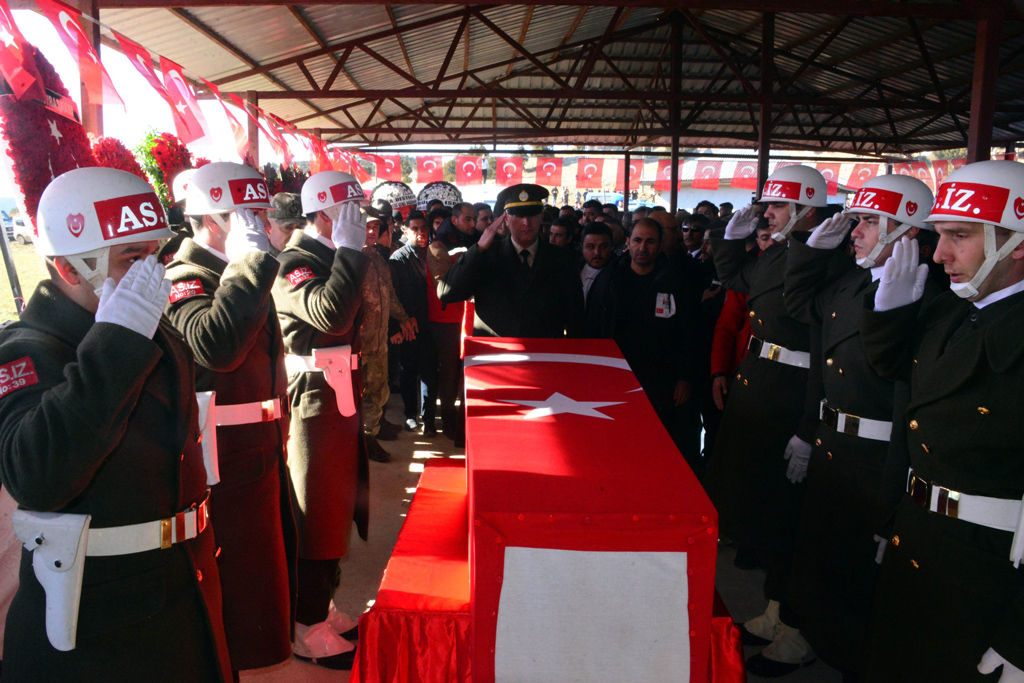Parliament returned from recess on Tuesday
to debate the PKK’s terror attacks. The PKK carried out suicide attacks against the Turkish forces in northern Iraq on Dec. 22 and Jan. 12, claiming 21 lives. That development fueled a multifaceted debate in Türkiye.
Iraq’s Matina and Zab regions are crucial to Turkish efforts to eliminate terrorism at its origin. Likewise, Türkiye conducted four operations in Syria – a reflection of its commitment to prevent the creation of a “
terroristan” (to borrow from the final declaration of last weekend’s security summit).
Many believe that scrutinizing the purpose of stationing Turkish troops in northern Iraq effectively undermines the
proactive counterterror strategy that Türkiye adopted in 2016 to end terror attacks at home. Obviously, Ankara rejects the possibility of retreating from the relevant areas. Quite the contrary, one would expect the country to take even bolder steps to actively crack down on the PKK and its affiliates in Iraq and Syria – leadership decapitation and the total eradication of PKK’s strategic capacity. Unless and until the United States stops supporting the YPG, a PKK component, in northern Syria and the PKK cannot find recruits in Iran, Ankara will have to complement its fight against terrorism with new diplomatic initiatives.
Long-standing fight against terrorism
The terrorist organization PKK-KCK has been targeting Türkiye with terror attacks for nearly four decades. Over the years, the organization received support from many different countries. Keeping in mind the proliferation of asymmetrical, hybrid and proxy wars worldwide, there is reason to believe that governments will continue to hire terrorist entities as contractors.
The number of Turks blaming the United States for the PKK’s terror attacks soars with each new attack due to Washington’s decision to station troops in Syria and arm the YPG in the name of fighting Daesh. The U.S. Embassy in Ankara offers its condolences to the Turkish people, but hardly anyone takes it seriously. Again, observers note the uptick in PKK attacks since Oct. 7 as more and more people come to believe that the most recent attacks were part of an attempt to “contain” Türkiye, which has been playing a more active role worldwide and in the region. The condemnation of terrorism and the backlash against imperialists waging a "proxy war of attrition" morph together to give rise to a new national feeling.
Obviously, Türkiye made significant progress regarding the fight against terrorism since the 1990s. Unlike then, the country has a political leadership, which proved capable of dealing with turbulence originating abroad and coup attempts, as well as political stability. At the same time, it has the ability to harness its newly-developed capacity, along with hard and soft power, to pursue Turkish-centric policies regionwide.
The idea that some foreign governments are using terrorism to undermine Türkiye remains widely shared among Turks against that backdrop. The country’s foreign allies and political parties need to take that into consideration.
CHP declines to endorse IP's statement
Parliament deliberated on the fight against terrorism on Tuesday based on information provided by Foreign Minister Hakan Fidan and Defense Minister Yaşar Güler.
The main opposition
Republican People’s Party (CHP) refused to sign a joint statement, which was prepared by the Good Party (IP), once again – which highlights its differences with the right-wing parties. Despite issuing its own statements, the CHP comes to be
increasingly associated with the pro-PKK Peoples’ Democratic Party's (HDP) successor Green Left Party (YSP), informally known as the Peoples' Equality and Democracy Party (DEM Party), that faces closure over its alleged links to PKK terrorists.
Cooperating with that movement transparently ahead of the March 2024 municipal elections in some provinces, the CHP is painting itself into a corner. As the People’s Alliance and right-wing opposition parties reach a new agreement on the fight against terrorism, the main opposition party finds itself isolated.
I would argue that CHP Chairperson Özgür Özel and Istanbul Mayor Ekrem Imamoğlu severely underestimate the likelihood of that policy alienating their party’s secularist and neonationalist supporters. This new state of affairs cannot be painted over by picking rhetorical fights.
[Daily Sabah, January 17, 2024]







